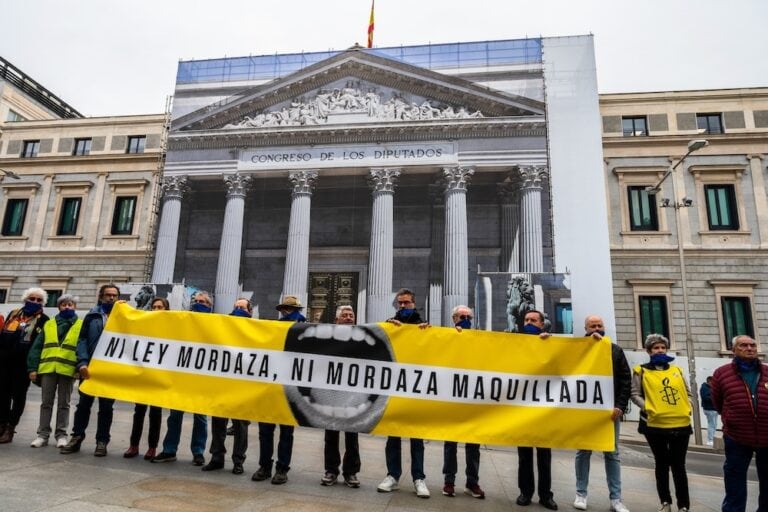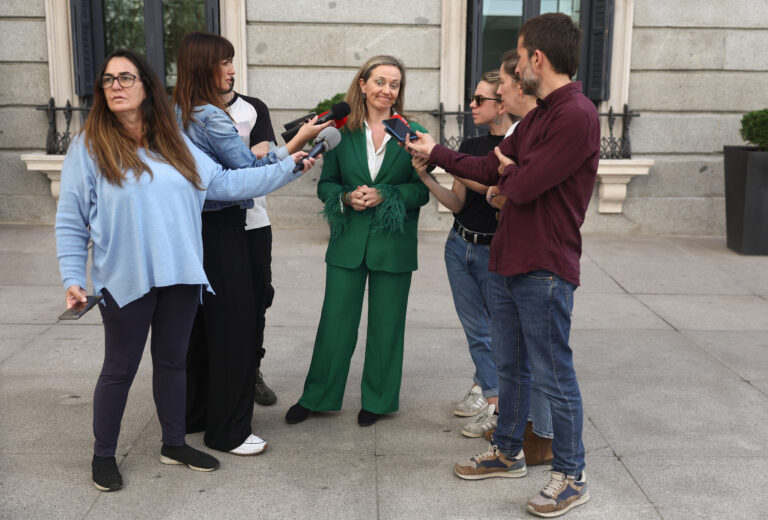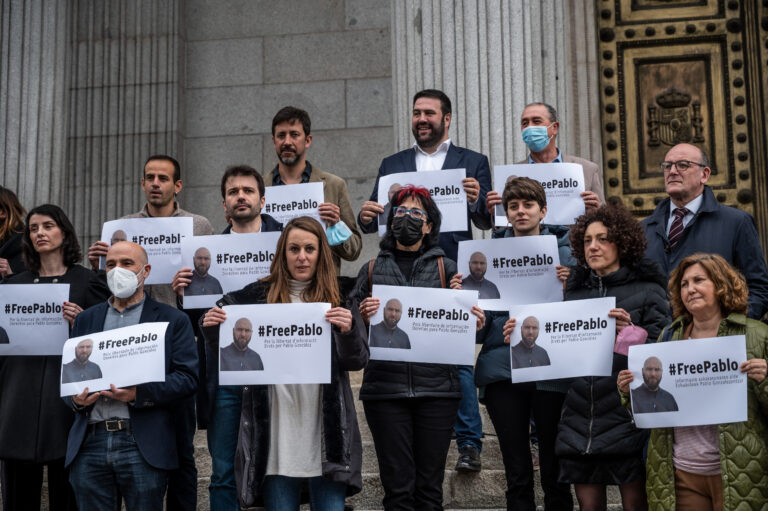Putting questions to the government in Spain can be pricey, as Access Info Europe, an NGO that campaigns on transparency, has recently discovered. Today the Spanish Supreme Court ordered the NGO to pay €3,000 in legal costs for requesting information about the country’s anti-corruption measures.
(Index on Censorship/IFEX) – 29 October 2012 – The following is an article by Miren Gutierrez from Index on Censorship’s Free Speech Blog.
Putting questions to the government in Spain can be pricey, as Access Info Europe, an NGO that campaigns on transparency, has recently discovered. Today the Spanish Supreme Court ordered the NGO to pay €3,000 in legal costs for requesting information about the country’s anti-corruption measures.
Meanwhile, a few blocks down on Paseo de la Castellana, Parliament discussed a Transparency, Access to Information and Governance Law. Spain is the only country in Europe with more than 1 million inhabitants that lacks legislation setting limits on governmental secrecy, as El Pais reports.
According to Access Info Europe, when issuing the sentence, the Supreme Court argued that requesting the data amounted to demanding explanations and was not a simple request of information (what is wrong with demanding explanations about public money and practice, one may wonder?).
According the NGO’s research, “at least 50 per cent” of all administrative procedures in Spain are out of the public’s reach.
This kind of “administrative silence” has been certainly resonant in, for example, the press conferences the government is so fond of – where no questions are permitted. And fewer journalists are asking questions too.
Público – maybe the only real progressive mainstream paper left in the market – died a few months ago. Público was founded in 2007 to cater to a younger and harder-left audience than the circulation leader, El País (also currently in big trouble). This is the very same audience that is experiencing unemployment rates of about 50 per cent (doubling Europe’s average rates, according to the International Labour Organisation). Público’s disappearance from newsstands has certainly resulted in a loss of diversity, information and analysis.
Radiotelevisión Española (RTVE) — the state television station — has got rid of most of its outspoken, dissenting journalists, using the excuse of a disagreement between the two main parties, the governing People’s Party (PP) and the opposition Partido Socialista Obrero Español, or PSOE. RTVE is a wholly state-owned public limited company, and, up to very recently, was a space for independent — or at the very least balanced — journalism. Taking advantage of the lack of consensus, the government made the decision to change the law so the governing PP didn’t have to negotiate the RTVE presidency with any other political party.
El Intermedio — one of the few surviving spaces for critique and humour — revealed in June that TeleMadrid, the first public television station in Madrid, had forbidden its journalists to utter the word “bailout” (“rescate” in Spanish) when referring to Europe’s plan to lend money to Spain to heal its banking sector. Apparently, Prime Minister Mariano Rajoy Brey’s government wants to portray an image of normalcy, even if the world is coming apart around him. Many oblige.
All these cases have something in common. They are symptoms of a great deterioration in Spanish journalism that goes beyond the economic front to include professional ethics. It is no surprise that on 3 May, thousands of journalists gathered in Madrid to demand “decency in today’s journalism”, and to denounce the general crisis that the sector is experiencing, affected by massive dismissals, downsizings, job insecurity and the proliferation of “press conferences” without questions.
In the midst of a gigantic crisis, the government wants journalists to report exactly what its representatives are saying. No questions asked. Now NGOs are not excluded from these restrictions.


